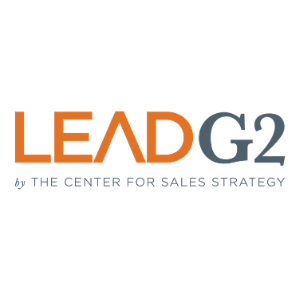3 Inbound Marketing Strategy Mistakes That Will Cost You
Successful inbound marketing takes time, energy, and practice. With so many do's and don'ts; successful inbound marketing can feel overwhelming. ...
3 min read
 LeadG2
:
May 11, 2023
LeadG2
:
May 11, 2023


While talking with one of our clients, they asked me the question, “What do I really need to know in order to not fail at inbound marketing?”
I immediately thought this was a fantastic question. After a long discussion about the importance of internal buy-in, setting clear expectations, ways to motivate writers, and many other important do’s and don’ts… it dawned on me that while these are conversations we have with all of our clients, it’s just as important of a conversation for anyone thinking about launching an inbound lead generation program.
While the benefits of being a thought leader and the value of generating new leads and new sources of revenue are increasingly more appealing (and necessary) than ever before, the unfortunate truth is that inbound marketing might not be for everyone. Sure, anyone could start a blog – but ask any online content marketer, and they’ll tell you it takes much more work than just publishing articles.
Here’s the short answer: You must fully understand and prepare for the fact that inbound marketing takes a huge investment of time, manpower, resources, and patience in order to be successful. When you’re able to realistically evaluate the type of support and resources you have internally, and determine the best plan of action to put in place for your business, then and only then will you be setting yourself up for success.
The common misconception that inbound marketing is an easy fix leads to many companies quickly failing at their efforts. However, the results can definitely be worth it – which is why every year, inbound marketing makes up larger and larger percentages of marketing budgets around the world. But every company must ask themselves a few critical questions first to determine if they are in a position to reap the benefits, or if they’re just setting themselves up for failure.
Start with the questions below to evaluate the current state of your business and determine whether you can execute on your own or if you need to bring on additional help in the shape of a consulting agency or a new internal team member.
Do we have the internal buy-in to get things done? Will management be onboard, and will employees be required to contribute to content creation efforts on a regular basis? Or do we have folks dedicated to writing content already? Do you have clear expectations outlined to your salespeople on how they'll use the inbound methodology to enable their sales process?
How much help do we need? Is there someone (or multiple people) on our team that can commit 10-30 hours a week developing strategy, analyzing reporting, doing SEO audits, creating landing pages, writing lead nurturing emails, setting up workflows, and qualifying leads? (Just to name a few.) In addition to that, is there a team of writers and designers able to produce blog posts each week and various premium content or sales enablement pieces on a regular basis?
Do we have a real need for more leads? Do our salespeople perform best when they are presenting solutions in front of a hot prospect that’s been qualified? Are they tired of calling on prospects that just aren’t interested or ready to buy? Does our organization rely 100% on outbound prospecting vs. a balanced approach?
What is a lead worth to our organization? Is it worth enough to see a return on our investment? How much value do we place on a hot lead? Or a new customer? If it takes a lot of work to generate leads for your business and each new customer is worth $25, then your cost-per-lead is going to be much higher than industries with customer lifetime values in the tens of thousands.
Do we have the knowledge, resources, and tools to do the job right? Are we hoping to just learn as we go or do we have someone with direct inbound marketing experience? How knowledgeable are we on the tools we'll be using for marketing automation? Can we be effective and efficient in our first-year efforts so that we see ROI quickly?
You might read through these questions and start thinking your company doesn’t have the capabilities to implement an inbound plan, but that’s not exactly true, and it’s definitely not the goal of presenting these questions. The goal is to ensure that your expectations are realistic and measurable and that the decisions you make (like whether to hire additional help -- internally or externally) lead you down the road to success.
*Editor's Note: This blog has been updated since its original publish date.

Successful inbound marketing takes time, energy, and practice. With so many do's and don'ts; successful inbound marketing can feel overwhelming. ...

As dedicated inbound marketers, we are passionate about creating opportunities for our sales teams. We constantly enhance our content, study trends,...

As part of the LeadG2 series on "The 10 Commandments of Inbound Marketing" we're looking at several principles that you can't succeed without. The...